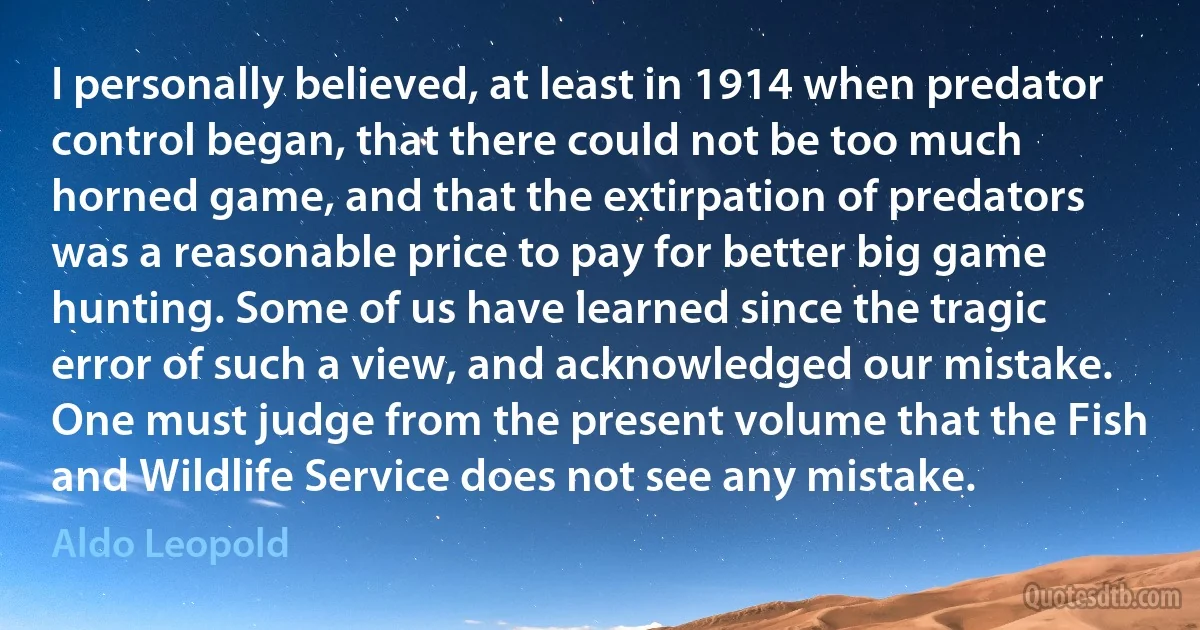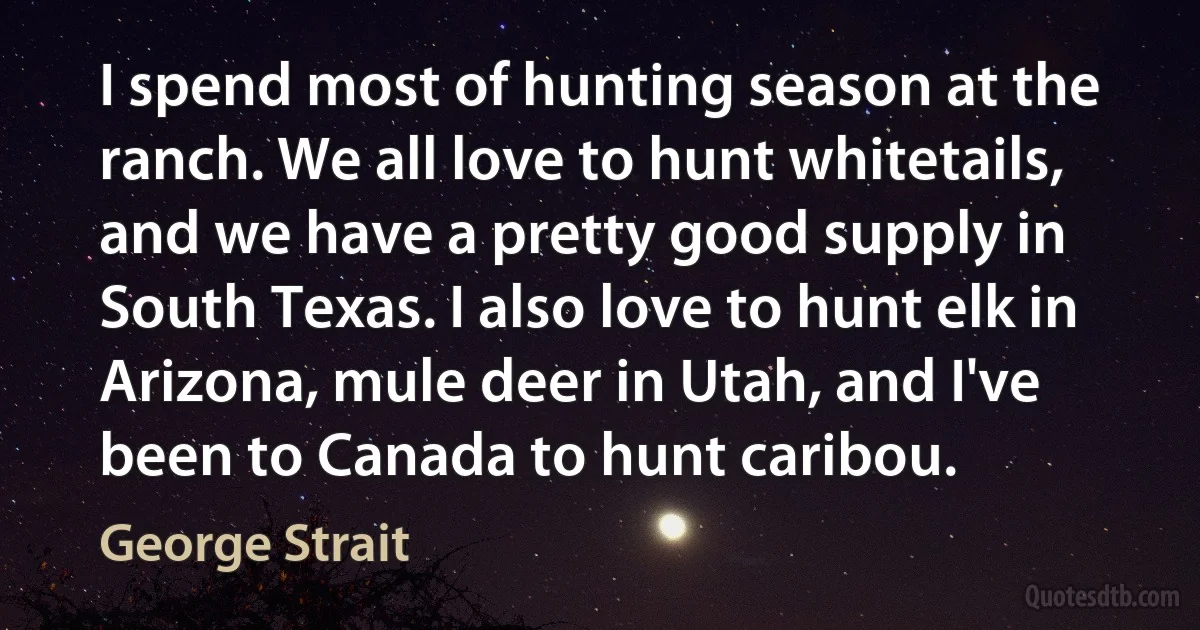Hunting Quotes - page 6
The poacher ... is asserting a right (and an instinct) belonging to a past time-when for hunting purposes all land was held in common. ... In those times private property was theft. Obviously the man who attempted to retain for himself land or goods, or who fenced off a portion of the common ground and-like the modern landlord-would allow no one to till it who did not pay him a tax-was a criminal of the deepest dye. Nevertheless the criminals pushed their way to the front, and have become the respectables of modern society.

Edward Carpenter
Man lives very well upon flesh, you say, but, if he thinks this food to be natural to him, why does he not use it as it is, as furnished to him by Nature? But, in fact, he shrinks in horror from seizing and rending living or even raw flesh with his teeth, and lights a fire to change its natural and proper condition. ... What is clearer than that man is not furnished for hunting, much less for eating, other animals? In one word, we seem to be admirably admonished by Cicero that man was destined for other things than for seizing and cutting the throats of other animals. If you answer that ‘that may be said to be an industry ordered by Nature, by which such weapons are invented,' then, behold! it is by the very same artificial instrument that men make weapons for mutual slaughter. Do they this at the instigation of Nature? Can a use so noxious be called natural?

Pierre Gassendi
If science, and devoting oneself to it, had no other use than avoiding exhausting temptations, rushes of hope that give worry, and thoughts that sadden the soul, that alone should give us reasons to seek it... Kinglets have sought distraction in chess, wine, music, hunting and much else that only bring harm in this world and the other.

Ibn Hazm
Chaucer, in his Canterbury Tales, makes the monk much better skilled in riding and hunting, than in divinity. The same poit, afterwards, in the Ploughman's Tale, takes occasion to accuse the monks of pride, because they rode on coursers like knights, having their hawks and hounds with them. In the same tale he severely reproaches the priests for their dissolute manners, saying, that many of them thought more upon hunting with their dogs, and blowing the horn, than of the service they owed to God.

Joseph Strutt
The mere management of arms, though essentially requisite, was not sufficient of itself to form an accomplished knight in the times of chivalry; it was necessary for him to be endowed with beauty, as well as with strength and agility of body; he ought to be skilled in music, to dance gracefully, to run with swiftness, to excel in wrestling, to ride well, and to perform every other exercise befitting his situation. To these were to be added urbanity of manners, strict adherence to the truth, and invincible courage. Hunting and hawking skilfully were also acquirements that he was obliged to possess, and which were usually taught him as soon as he was able to endure the fatigue that they required.

Joseph Strutt
As in hunting, so in hawking, the sportsmen had their peculiar impressions, and therefore the tyro in the art of falconry is recommended to learn the following arrangement of terms as they were to be applied to the different kinds of birds assembled in companies. A sege of herons, and of bitterns; an herd of swans, of cranes, and of curlews; a dopping of sheldrakes; a spring of teels; a covert of cootes; a gaggle of geese; a badelynge of ducks; a sord or sute of mallards; a muster of peacoccks; a nye of pheasants; a bevy of quails; a covey of partridges; a congregation of plovers; a flight of doves; a dule of turtles; a walk of snipes; a fall of woodcocks; a brood of hens; a building of rooks; a murmuration of starlings; an exaltation of larks; a flight of swallows; a host of sparrows; a watch of nightingales; and a charm of goldfinches.

Joseph Strutt
The first class contains four, which, we are informed, may be properly called beasts for hunting; namely, the hare, the hart, the wolf, and the wild boar. The second class contains the names of the beasts of the chase, and they are five; that is to say, the buck, the doe, the fox, the martin, and the roe. In the third class we find three, that are said to afford "greate dysporte" in the pursuit, and they are denominated, the grey or badger, the wild-cat and the otter...The reader may possibly be surprised, when he casts his eye over the foregoing list of animals for hunting, at seeing the names of several that do not exist at this time in England, and especially of the wolf, because he will readily recollect the story so commonly told of their destruction during the reign of Edgar.

Joseph Strutt
If it be granted that the Britons, generally speaking, were expert in hunting, it is still uncertain what animals were obnoxious to the chase; we know however, at least, that the hare was not anciently included; for Cæser tells us, "the Britons did not eat the flesh of hares, notwithstanding the island abounded with them." And this abstinence, he adds, arose from a principle of religion; which principle, no doubt, prevented them from being worried to death: a cruelty reserved for more enlightened ages.

Joseph Strutt
Dio Nicæus, an ancient author, speaking of the inhabitants of the northern parts of this island, tells us, they were a fierce and barbarous people, who tilled no ground, but lived upon the depredations they committed in the southern districts, or upon the food they procured by hunting.

Joseph Strutt



